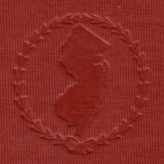 |  |  |
|
| ||
 |  |  |
 |  |  |
|
| ||
 |  |  |
|
|
By Frank R. Stockton
Originally published in 1896
At this conference there was a notable exhibition
of Indian etiquette. The governor had called the Minisinks,
a tribe of the Delawares, to meet him; and
they had informed the Mingoians, who, with some
other northern tribes, were then gathered together at
the grand council fire at the forks of the Delaware,
where is now Easton. This was done, because at that
time the Mingoians considered themselves superior to
the Delawares, from whom proper respect was due.
One of the chiefs from the council fire was sent
down to represent the Mingoians. After some speeches
were made, he told the white governor that the Minisinks,
being Delawares, were women, and were not
able of themselves to make treaties, therefore he had
come down to look into the matter. As his people
were then holding a grand council fire at the forks
of the Delaware, they did not wish to put it out and
build another council fire on this side of the Delaware.
The reason which he gave for this was figurative and
Indian-like.
He stated that the river roared and thundered, and
made a great deal of noise; and, if the council were
held on this side, the distant Indian nations who dwelt
to the west of the Delaware could not hear what was
said at the council, and therefore it would be unfair
to them to hold it on this side of the river. He concluded
with a cordial invitation to the governor and his
party to meet the Indians at their own council fire.
About a month afterward, the governor, with some
members of the Legislature, and other white people
from New Jersey and Pennsylvania, met over five
hundred Indians at the forks of the Delaware in
grand council. Some of the speeches on this occasion
were very interesting. A chief of the United Nations,
speaking for the Delawares, who, having made themselves
women by becoming peacemakers, had no right
to speak for themselves, addressed the council as follows:-
"Brethren, we now remove the hatchet out of your
heads, that was struck into it by our cousins the Delawares.
It was a French hatchet they unfortunately
made use of, by the instigation of the French. We
take it out of your heads, and bury it underground,
where it shall always rest, and never be taken up again.
Our cousins the Delawares have assured us they will
never think of war against their brethren the English
any more, but will employ their thoughts about peace
and cultivating friendship with them, and never suffer
enmity against them to enter into their minds again."
Another chief said : "Brethren, I speak in behalf
of the younger nations, – those who are confederated
with the Six Nations, the Cayugas, Oneidas, Tuscaroras,
Tutaloes, Nanticokes, and Conoys. A road has
been made from our country to this council fire, that
we might treat about. friendship; and as we came down
the road, we saw, that, by some misfortune or other,
blood has lately been spilt on it. Now, we make the
road wider and clearer. We take the blood away out
of it, and likewise out of the council chamber, which
nay have been stained. We wash it all away, and
desire it may not be seen any more, and we take the
ratchet out of your heads."
The governor of New Jersey also addressed this
council, particularly urging them to require the Indians
who had taken away prisoners to return these
unfortunate people to their homes. In answer to this,
one of the great chiefs of the United Nations made a
speech to the Minisinks and the Delawares, in which
he gave them a good scolding for not having returned
these prisoners before ; for it seemed that they had
promised to do so.
The council continued several days; and the Minisinks
promised faithfully that they would search all
the towns in their territory for prisoners, and return
them to their own people. This matter having been
settled, Governor Bernard made a formal proposition
to buy all the lands which the Indians still retained
in New Jersey; and, after a good deal of consultation,
the chiefs of the United Nations advised the Minisinks
and Delawares to accept the terms which were
offered. After much talk, it was done, the necessary
papers were signed, and the State of New Jersey was
formally bought from its Indian owners.
After this great matter had been settled, the tract
of land which was to be set apart for the occupation
of the Indians of the State, south of the Raritan River,
in Burlington County, was purchased. It consisted of
three thousand acres, which reached to the seacoast.
There was plenty of fishing on it, and there were wild
lands and forests, in which game abounded. Here
the Indians could live as they pleased after their old-fashioned fashions, and never need fear disturbance
by white men. Here they removed, and here they
did live, apparently perfectly satisfied; and after this
there were no further Indian troubles in New Jersey.
This Web version, edited by GET NJ, COPYRIGHT 2003
| Next |
| Main Menu |

|

|
UrbanTimes.com |